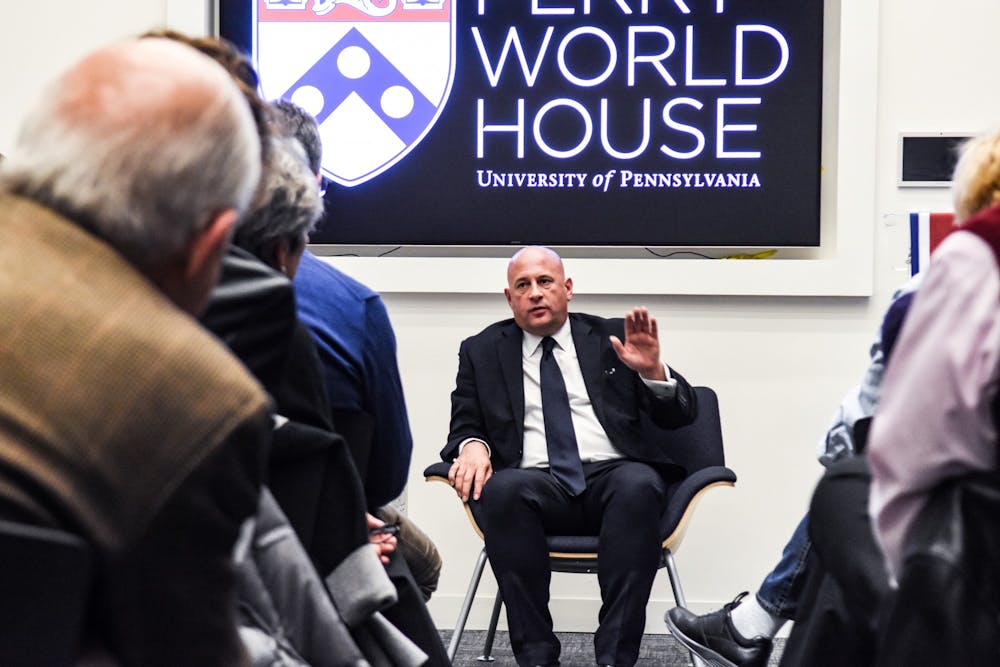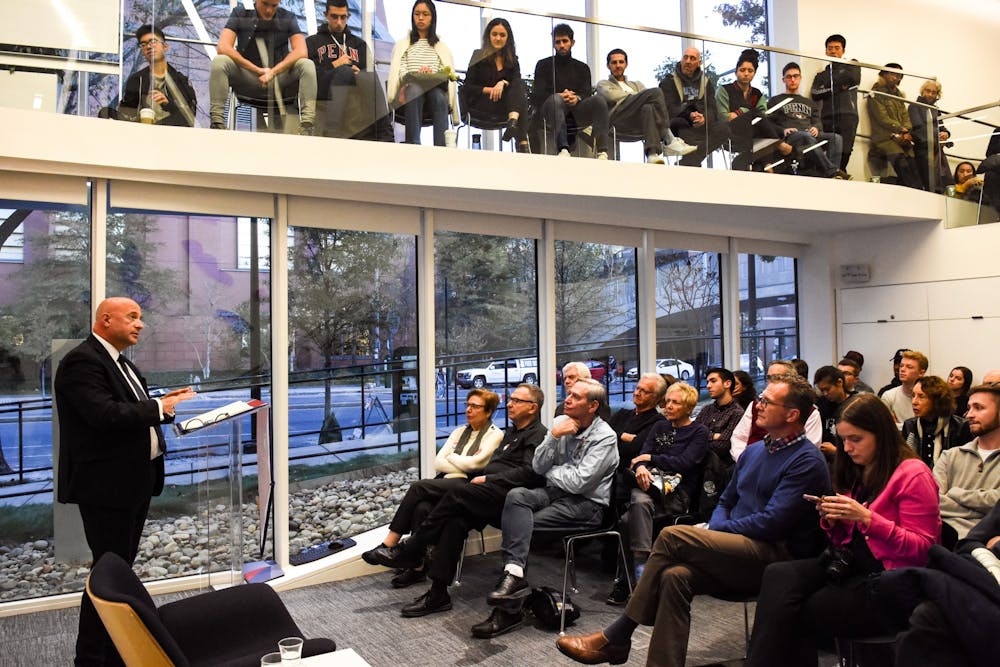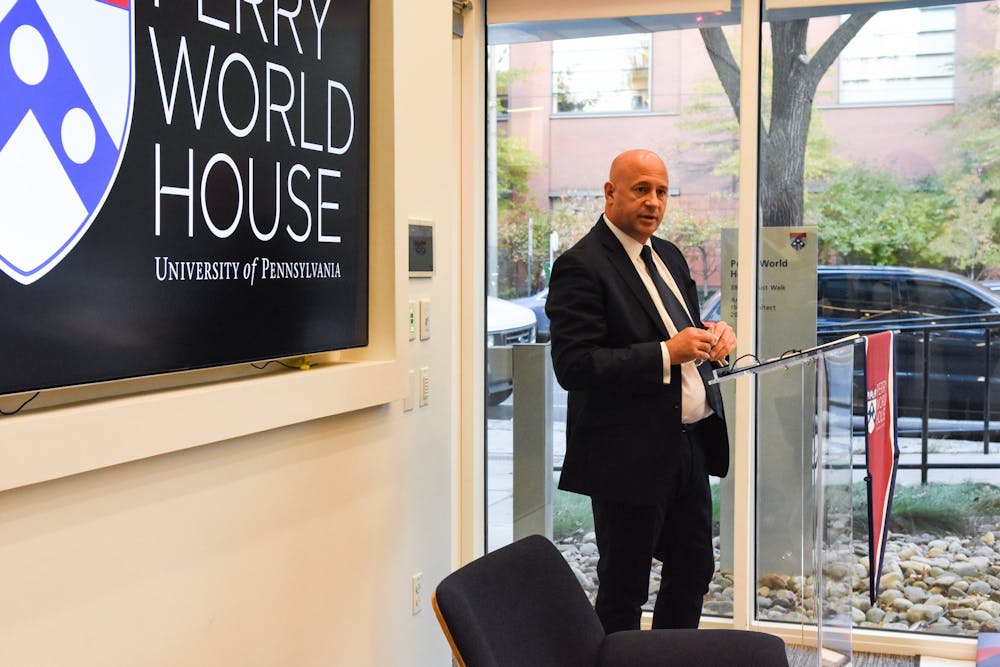
Lord Jonathan Mendelsohn spoke about the history, possible causes, and implications of the Brexit referendum.
Credit: Isabella CossuThree years after the United Kingdom voted to exit the European Union, Perry World House welcomed Lord Jonathan Mendelsohn to speak about the future of the British government and the challenges it faces.
Mendelsohn, who has served in the British Parliament's House of Lords since 2013, spoke about the history, possible causes, and implications of the Brexit referendum at a Tuesday evening event titled "Looking Beyond Brexit." Attendees packed Perry World House's Global Policy Lab, with some gathering on the stairs to hear Mendelsohn speak. During his remarks, Mendelsohn highlighted the social tensions stemming from Brexit, uncertainties in the United Kingdom's future, and the necessity of reforms to secure the country's future.
Mendelsohn began with a brief history of the British empire and a summary of the "Brexit saga," referencing the initial referendum to leave the European Union in June 2016 and the years of turmoil that followed. While the United Kingdom was initially supposed to leave the European Union in March 2019, the deadline was extended until Oct. 31 after former Prime Minister Theresa May failed to negotiate a Brexit deal that was accepted by Parliament. While Prime Minister Boris Johnson has now developed a revised deal, Parliament has postponed voting on it and the European Union has agreed to a further extension until January 2020.
Lord Mendelsohn said the United Kingdom no longer leads in economic, diplomatic, and social sectors.
Throughout the event, Mendelsohn emphasized that the Brexit referendum has created hard feelings in British society, highlighting social and class divisions between those who voted for or against it.
“[The referendum] crystallized a whole series of hostile moments of cultural conflict and created a massively emotional response,” Mendelsohn said. “There was no relationship between these two sides, and we ended up with an election and campaign that created a series of rifts and divisions which we have not been able to heal.”
These divisions, Mendelsohn argued, have led the United Kingdom to forget its national mission.
“We’ve trashed every institution that we have," he said. "We’ve argued [that] the parliament, the prime minister, or the House of Lords is unjustifiable or archaic.”
Lord Mendelsohn later turned to discuss the United Kingdom's future, arguing that the country no longer leads in economic, diplomatic, and social sectors.
"[We’re a] country which believed that our greatest success is how we coast along through history," he said. "As we now come from the challenges, we find ourselves ill-equipped to do so."
Mendelsohn highlighted the need for reform and remained relatively optimistic about the country's future, adding that "Britain over a period of time has a chance of success."
Mendelsohn said, “You should take the election seriously because the stakes are really high" to a student who asked who he should vote for in Britain's upcoming general election.
Ada Rustow, a first-year master's student in Urban and City Planning, said before the event that she was excited to hear Lord Mendelsohn speak because she completed her undergraduate studies in the United Kingdom.
Rustow said she was most looking forward to "hearing an original perspective" from Lord Mendelsohn but feared he would "sugarcoat the situation and be more optimistic and less realistic."
In a question and answer session after the talk, a Penn student from London asked Mendelsohn who he should vote for in Britain's upcoming general election. While Mendelsohn at first dismissed the election as the “ugly baby contest of ugly babies” and the “electile dysfunction election," he ultimately urged the student to vote based on the issue that is most important to him.
“You should take the election seriously because the stakes are really high," he said. "So my advice to you is really search your heart what means the most to you and make a decision on that basis, and that may well be not even voting for the party that you might be inclined to vote for."
The Daily Pennsylvanian is an independent, student-run newspaper. Please consider making a donation to support the coverage that shapes the University. Your generosity ensures a future of strong journalism at Penn.
Donate



